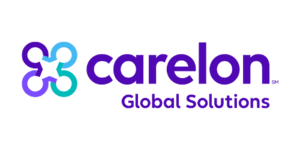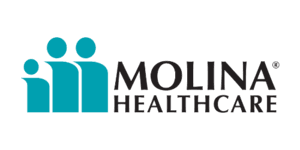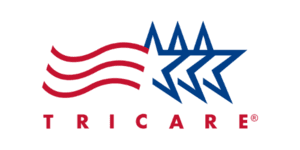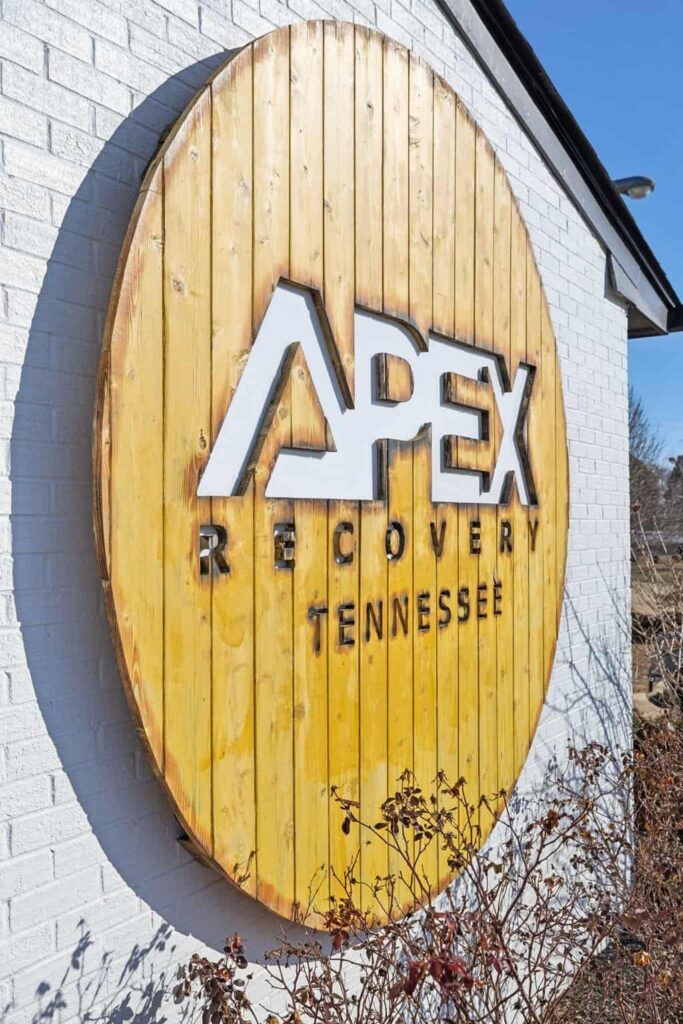










We Accept Most Major Health Insurance
Apex Recovery Tennessee is a trusted leader in treating psychotic disorders and complex psychiatric conditions. With licensed and accredited treatment behavioral health facilities dedicated to delivering supportive, high-quality care, Apex Recovery stands apart as a vital resource for individuals seeking mental health recovery. We specialize in personalized, evidence-based treatments, making sure each person receives the care they deserve. Apex Recovery accepts health insurance plans from most major providers and offers the convenience of verifying your coverage levels on your behalf. Our mental health facilities in Columbia and Brentwood are easily accessible from cities across Tennessee, including Nashville, Memphis, Knoxville, Clarksville, and Murfreesboro, making effective mental wellness treatment available when and where you need it most.
When it comes to navigating your psychiatric treatment options and insurance coverage, we can help. Contact Apex Recovery Tennessee today at (615) 703 4639 to speak with our caring team members who can provide guidance, answer your questions, and help you take the next step toward recovery. Every call is confidential, and our qualified team is committed to supporting your mental health journey. Don’t wait to get the help you need. Reach out to Apex Recovery Tennessee today; we’re ready to support you.
Check Your Insurance
with Apex Recovery
At Apex Recovery we accept insurance and can assist you in verifying your coverage for psychotic treatment. Our qualified team is dedicated to simplifying this step, helping you understand your health benefits and gain access to the care you need for recovery.

What is a Psychotic Disorder?
Psychotic disorders are mental health conditions that disrupt a person’s ability to think clearly, process information, and stay grounded in reality. They can affect how someone perceives the world, often causing confusion, emotional distress, or behavioral changes that interfere with daily life.
Common symptoms of psychotic disorders include hallucinations, which involve seeing or hearing things that aren’t real, and delusions, where one believes things that are false. Disorganized thinking and speech are also frequent. While symptoms can feel overwhelming, trained professionals can help manage and treat psychotic disorders, encouraging recovery and improved quality of life.
Check Your Health Insurance Coverage
"*" indicates required fields
Does Insurance Cover Assessments for Delusional Conditions?
Yes, insurance often covers assessments for delusional conditions, but the extent of coverage depends on your specific insurance provider and healthcare plan. Many providers recognize the importance of early evaluation for mental health conditions and include it as a covered health benefit, though co-pays or deductibles may apply.
At Apex Recovery Tennessee, we take the guesswork out of the process by offering free and confidential psychotic assessments as part of our treatment admissions process. Our healthcare team is here to guide you every step of the way, helping you understand your insurance coverage and connecting you with the care you need.
Does Health Insurance Cover Psychotic Disorder Treatment in Tennessee?
Yes, health insurance commonly covers treatment for psychotic disorders, but the extent of coverage depends on your specific provider and plan. Many insurance companies recognize the importance of mental health treatment and include it as part of their benefits, though co-pays, limits, or pre-authorization requirements may apply.
Treatment methods that might be covered include inpatient residential programs, partial hospitalization programs (PHP), and intensive outpatient programs (IOP). These evidence-based approaches provide structured care tailored to meet individual needs. At Apex Recovery Tennessee, we can help you understand your healthcare plan’s coverage and guide you in accessing the most effective mental health treatment for psychotic disorders near you.
Does Health Insurance Cover Therapy and Counseling for Psychotic Disorders?
Yes, health insurance may cover therapy and counseling for psychotic disorders, though the extent of coverage varies by provider and policy type. Many insurers acknowledge the importance of mental health care and include therapy as part of their health benefits.
Examples of mental health therapy methods that may be covered include group therapy, individual therapy, cognitive behavioral therapy (CBT), and dialectical behavior therapy (DBT). The approaches address symptoms while building coping strategies and emotional resilience. At Apex Recovery, we can help you understand your insurance benefits and guide you toward the most effective therapeutic support.
Free Psychotic Disorder Assessment
Private Psychotic Disorder Treatment Centers in Tennessee That Accept Insurance
Private behavioral health centers in Tennessee, such as Apex Recovery, offer specialized care for people struggling with psychotic disorders. By accepting insurance, they strive to make high-quality mental health treatment more accessible for those in need. Our mental health facilities are committed to supporting your recovery journey with expert care in a supportive environment.
- Apex Recovery Brentwood: 209 Ward Cir, Brentwood, TN 37027
- Apex Recovery Columbia: 2710 Trotwood Ave STE A & B, Columbia, TN 38401
How to Find Psychotic and Thought Disorder Recovery Centers Near Me That Take Insurance
Finding a psychotic and thought disorder treatment center that accepts insurance is crucial for accessing affordable and effective care. The tips below can help you locate the right mental health facilities for you that provide specialized treatment while making sure your insurance benefits are maximized to the fullest:
- Use the SAMHSA Treatment Locator: This online tool helps you find mental health facilities near your location. Simply enter your ZIP code to access a list of psychotic disorder recovery centers in Tennessee that cater to your condition.
- Contact Your Health Insurance Provider: Your insurance company can provide a list of in-network facilities for psychotic disorders. Cities like Nashville, Brentwood, and Columbia often have highly-rated centers that offer comprehensive mental health services in Tennessee.
- Explore Reputable Mental Health Centers: Reach out to well-known mental health organizations for referrals. Call their helplines to connect with support and information about available psychotic disorder treatment options near you.
- Check the Facility’s Website to See if They Accept Insurance: Visit the websites of potential mental health recovery centers in Tennessee to confirm insurance acceptance and learn about their services. Many facilities list accepted, in-network providers for transparency.
- Contact the Facility and Ask if They Take Insurance: A direct call to the recovery center can clarify insurance acceptance and provide details about their programs, costs, and admissions process. Speaking directly can help ease concerns and ensure understanding.
Does Insurance Cover Psychotic Disorder Medication?
Yes, insurance may cover medications for psychotic disorders, but the extent of coverage depends on your specific healthcare provider and your plan with them. Understanding your health benefits and speaking with your insurance company can help clarify what is included under your policy.
Medications such as Risperidone, Olanzapine, or Aripiprazole are common antipsychotics that may be covered. The medications (if needed) must be prescribed by a healthcare professional as part of a comprehensive treatment plan. Always consult with your doctor and insurance provider to make sure you can access the medications you need.
Common Psychotic Disorder Treatment Programs in Tennessee Covered by Health Insurance
Tennessee offers a range of psychotic disorder treatment programs covered by health insurance, including inpatient care, outpatient services, and therapy-based options. The mental health treatments are designed to provide personalized and well-rounded care, helping individuals manage their symptoms effectively. Accessing healthcare services through your insurance plan can make quality mental health care more affordable and accessible.
Inpatient Stabilization for Psychotic and Delusional Conditions
Inpatient stabilization provides a secure and structured environment for patients facing severe psychotic or delusional episodes. With 24/7 access to medical and psychiatric care, this immediate intervention prioritizes safety, symptom management, and tailored treatment in a supportive setting.
For those with depression-related psychosis, inpatient stabilization offers intensive care to address distressing symptoms like hallucinations or paranoia. It focuses on stabilizing mood, managing psychosis, and creating a foundation for ongoing recovery and treatment planning in a safe, compassionate space.
Residential Treatment for Complex Psychiatric Conditions
Residential treatment offers long-term, structured care in a live-in facility designed for individuals with complex psychiatric conditions. Inpatient treatment programs often combine therapy, medication management, and holistic support in a safe, nurturing environment where individuals receive comprehensive, round-the-clock care tailored to their unique needs.
Residential treatment offers stability and consistent care to address underlying issues for people with severe mental illness. The approach can help you develop effective coping strategies, build resilience, and work toward long-term recovery with continuous support from a dedicated clinical team.
Day Programs for Psychotic and Mood-Related Disorders (PHP)
Partial Hospitalization Programs (PHP) provide intensive, structured treatment during the day for individuals managing psychotic and mood-related disorders. PHP services offer therapy, medication management, and skill-building sessions in a supportive setting, allowing participants to return home each evening, maintaining stability and connection to their daily routines.
PHPs offer a balanced approach to care. They provide access to therapy and coping skills training while maintaining some elements of everyday life. This structure supports emotional healing and equips participants with tools to manage their symptoms effectively, all within a supportive and professional environment.
Intensive Outpatient Programs for Thought and Behavioral Health Issues
Intensive Outpatient Programs (IOPs) offer flexible, structured care for people managing thought and behavioral health issues. IOP services provide therapy and support several times a week, allowing participants to focus on their recovery while continuing to live at home and maintain their daily routines.
IOPs provide targeted therapy to help people with psychotic disorders manage their symptoms, create coping mechanisms, and build emotional strength. The program also encourages peer support, creating a sense of community and understanding, all while allowing participants to manage family, work, or other responsibilities in a supportive framework.
Coordinated Specialty Care for First-Episode Psychosis
Coordinated Specialty Care (CSC) is a team-based treatment approach tailored for individuals experiencing their first episode of psychosis. It combines therapy, medication, family involvement, and education to provide holistic care. This method focuses on early intervention to help individuals regain stability and work toward recovery in a supportive environment.
CSC provides comprehensive early intervention that can address mood and psychotic symptoms in people with depression-related psychosis. By focusing on improving functioning and providing coping tools, it helps build a foundation for long-term mental health and recovery while also supporting emotional well-being through collaborative and compassionate care.
Dual Diagnosis Programs for Substance Use and Delusional Symptoms
Dual diagnosis programs offer integrated treatment for individuals managing both substance use disorders and mental health conditions like delusional symptoms. It combines therapy, medication, and supportive care to address the unique challenges of co-occurring disorders, providing a pathway to recovery in a safe and structured setting.
Dual diagnosis programs offer focused treatment for people with co-occurring substance use disorders that addresses both conditions simultaneously. This approach helps stabilize mood, reduce dependence on substances, and promote emotional healing. With a focus on overall well-being, it offers tools and support for sustainable recovery and improved quality of life.
Medication Management for Complex Psychiatric and Mood Disorders
Medication management involves the careful prescription, monitoring, and adjustment of medications to address complex psychiatric and mood disorders. The approach to medication oversight makes it certain that prescribed medications are both safe and effective while being tailored to each person’s needs, improving optimal mental and emotional well-being.
Medication management helps in mood stabilization and symptom reduction, laying the groundwork for recovery. A customized strategy for complex and mood disorders improves overall quality of life by allowing adjustments based on response and side effects. The procedure guarantees considerate and efficient care when it is supported and monitored consistently.
Telehealth Access for Psychotic and Thought Disorder Support
Telehealth access provides remote care for people managing psychotic and thought disorders. Through virtual therapy sessions, consultations, and medication management, telehealth ensures that professional support is accessible and convenient. This method removes geographical restrictions while providing individuals in need with high-quality, organized care.
Telehealth in Tennessee offers flexible, stigma-free access to therapy and essential support from the comfort of home. It allows for ongoing treatment and continuity of care, helping to manage symptoms effectively while fitting into daily routines. It can empower you to pursue your recovery in a supportive and convenient way.
Check Your Insurance Coverage
Health Insurance Providers That Cover Complex Psychiatric Conditions in Tennessee
BlueCross BlueShield of Tennessee, Cigna Healthcare, and Aetna offer strong mental health coverage as part of their well-rounded healthcare plans. They include access to therapy, prescription coverage, and specialized care for complex psychiatric conditions. The insurance providers make sure members have the resources needed to manage mental health challenges while supporting their recovery journey and overall well-being.
UnitedHealthcare (UHC), Ambetter (from Celtic Insurance), and Oscar Health focus on providing accessible and affordable mental health services. The wellness plans often include telehealth options, in-network mental health professionals, and care tailored to individual needs. These providers work to reduce barriers to mental health support while emphasizing affordability and convenience for Tennessee residents.
Humana, Molina Healthcare, National General (an Allstate company), and Farm Bureau Health Plans deliver flexible coverage tailored for individuals and families. Their health insurance plans address psychiatric and mood disorders through therapy, medication management, and well-rounded mental health support. They aim to promote recovery and improve quality of life with thoughtful, inclusive care options.
How to Get Insurance to Pay for Psychotic Treatment in Tennessee
Navigating insurance for mental health and psychotic treatment doesn’t have to be stressful. By contacting Apex Recovery, you can rely on us to handle the process for you. We’ll verify your coverage levels and work directly with your insurance provider, ensuring that you can focus on your recovery without worrying about the details.
To get started, call Apex Recovery Tennessee or fill out the form on this page. Our team of professionals is here to make the process as simple as possible, providing guidance and support every step of the way. Take the first step toward treatment today with confidence and ease – call our experts at (615) 703 4639.
- In 2021, 18% of adults in Tennessee experienced frequent mental distress, highlighting the need for accessible mental health services.
- In 2025, the revenue for the U.S. psychotic disorders market is projected to reach $2.25 billion, driven primarily by antipsychotic drug sales.
- Tennessee had an adult suicide mortality rate of 22.00 per 100,000 in 2021, underscoring the critical importance of mental health interventions.
- Approximately 50 in 100,000 people experience a first-time episode of psychosis annually in the U.S., with schizophrenia accounting for 15 in 100,000 cases.
